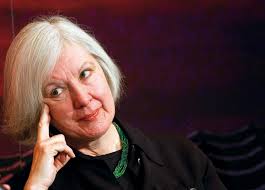The BBC Singers today announced the appointment of Judith Weir CBE as their new Associate Composer from January 2015, in a tenure running until 2018.
It follows the announcement that Judith Weir will be Peter Maxwell Davies’s successor as Master of the Queen’s Music, the first ever female composer to take up the role.
Weir will be the fourth composer to take up the position with the BBC Singers, following in the footsteps of Gabriel Jackson, who held the post from 2010 to 2013, Judith Bingham, and Edward Cowie who was the first BBC Singers Associate Composer in 2002.
Weir already has a long-standing relationship with the BBC Singers, who have been performing her music for over 10 years. Her first commission for the group was Concrete which premiered in 2008 at the BBC Composer weekend. The BBC Singers have performed Weir’s music in many notable venues including the Royal Albert Hall for the BBC Proms, St Magnus International Festival, Cadogan Hall and the Barbican Centre.
Paul Hughes, General Manager of the BBC Singers, says: “I’m delighted that Judith – a long-time friend of the BBC Singers – has agreed to join us. Her choral writing is exquisite and fits us like a glove; she has the wonderful ability to curate interesting programmes around her music, and she is an inspiration for younger generations of composers. I look forward to many exciting times ahead.”
Judith Weir says: “Many of my best musical experiences, whether as composer or listener– in performances, recordings and workshops – have been spent in company with the BBC Singers. This world-famous choral ensemble is immensely experienced and professional, but nevertheless always friendly and flexible in rehearsal. It’s with great enthusiasm and pleasure therefore, that I have accepted the invitation to become their next Associate Composer. In the 90th year of their foundation, their record of supporting living composers and new music has few equals, and I feel extremely fortunate to have the chance of working with them on a regular basis in the coming years.”

